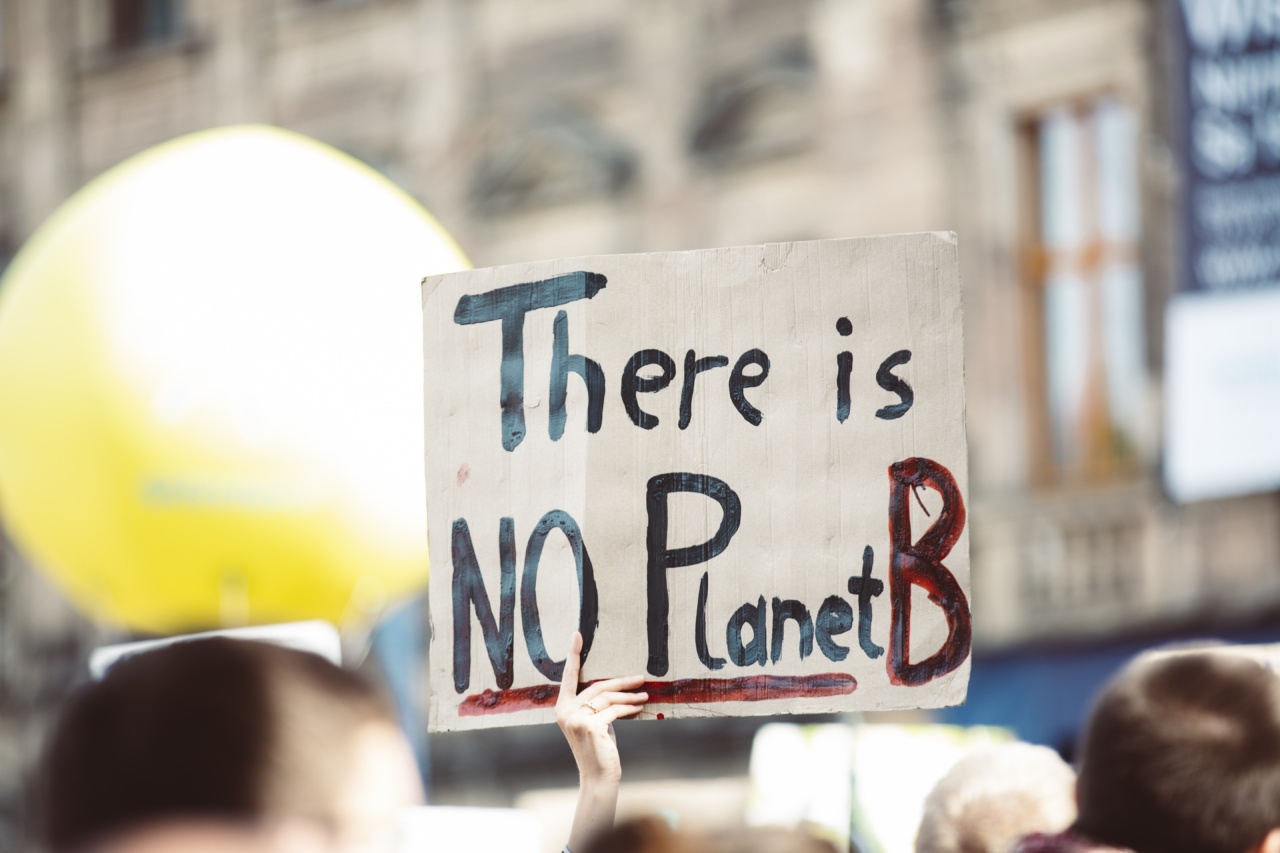Climate change is a pressing issue of our time, with its consequences affecting various aspects of our lives. From extreme weather events to rising sea levels, the environmental impact is evident.
However, one aspect that receives less attention is how climate change can affect our libido and sexual health. It may come as a surprise, but there is a growing body of evidence suggesting a link between the two. In this article, we will delve into how rising temperatures and environmental disruptions can impact our sexual desires and overall sexual health.
1. The Heat is On: Rising Temperatures and Hormonal Changes
As the Earth’s temperature continues to rise due to climate change, it has a direct effect on our physiology. High temperatures can lead to hormonal changes in our bodies, affecting our sexual desires.
Studies have shown that extreme heat can reduce testosterone levels in both men and women, resulting in a decrease in libido. Furthermore, increased heat can also lead to dehydration and fatigue, which can further dampen sexual desire.
2. The Stress Factor: Climate Change-induced Anxiety
Climate change brings with it a sense of uncertainty and anxiety about the future. The constant worry about the environmental crisis can be a significant stressor, impacting our mental well-being.
Stress, in turn, can negatively impact libido and sexual satisfaction. Chronic stress can disrupt hormone production and increase the production of cortisol, a stress hormone that can dampen sexual desire.
3. Environmental Disruptions and Reproductive Health
Climate change brings about various environmental disruptions that can have a significant impact on reproductive health.
Extreme weather events, such as hurricanes and floods, can displace communities and disrupt access to healthcare services, including reproductive health services. This lack of access can lead to unintended pregnancies, unsafe abortions, and increased risk of sexually transmitted infections.
4. Pollution and Endocrine Disruptors
Environmental pollution is another consequence of climate change that can disrupt our sexual health. Industrial pollutants and chemicals can act as endocrine disruptors, interfering with the normal functioning of our hormonal system.
These disruptors can mimic or block hormone actions, leading to hormonal imbalances that can affect libido and sexual function.
5. Changing Seasons: Seasonal Affective Disorder and Libido
Seasonal changes can also influence our sexual desires, and climate change is altering these patterns. With rising temperatures, we may experience longer and more intense summers.
Longer, hotter summers can lead to increased cases of seasonal affective disorder (SAD) during the winter months. SAD can cause depression, fatigue, and a decrease in libido, affecting sexual health and well-being.
6. Disrupted Ecosystems and Fertility
Climate change can disrupt ecosystems, leading to changes in the availability of food and resources necessary for fertility. With the decline of certain species and habitats, food scarcity can become an issue.
Inadequate nutrition can affect reproductive health and fertility. In addition, disruptions in ecosystems can also lead to the spread of diseases, such as Zika virus, which can have severe implications for sexual health and fertility.
7. Mental Health Implications
Climate change can have profound implications for mental health, including its impact on our sexual desires. The constant worry and fear about the future can contribute to anxiety, depression, and other mental health disorders.
These conditions can affect libido, relationships, and overall sexual well-being.
8. Solutions for a Sustainable Sexual Future
While the impacts of climate change on libido and sexual health are cause for concern, there are steps we can take to mitigate these effects:.
a. Raise awareness: Increasing awareness about the relationship between climate change and sexual health is crucial.
Education can help individuals understand the importance of adapting to climate change and the potential impacts on their sexual well-being.
b. Practice contraception: As access to reproductive healthcare services may be disrupted due to climate change, practicing contraception becomes essential. This can help prevent unintended pregnancies and reduce the risk of unsafe abortions.
c. Support mental health: Prioritizing and supporting mental health is vital in confronting the anxiety and stress induced by climate change.
Seeking therapy, practicing self-care, and engaging in stress-reducing activities can contribute to overall well-being, including sexual health.
d. Reduce pollution: Taking steps to reduce pollution is not only beneficial for the environment but also for our sexual health.
Limiting exposure to endocrine disruptors and maintaining a clean and sustainable environment can help preserve hormonal balance and sexual function.
9. The Urgency of Climate Action
To ensure a healthy and sustainable sexual future, urgent action to combat climate change is necessary.
Governments, organizations, and individuals must work together to reduce greenhouse gas emissions, transition to renewable energy sources, and adopt sustainable practices. By addressing climate change at its core, we can safeguard not just our planet but also our sexual health and well-being.
10. Conclusion
Climate change is a multifaceted global issue that affects various aspects of our lives, and our sexual health is no exception.
Rising temperatures, environmental disruptions, stress, and pollution can all contribute to changes in libido, hormonal imbalances, and fertility issues. However, by increasing awareness, practicing contraception, supporting mental health, and taking action to reduce pollution, we can mitigate the impact of climate change on human sexuality.
It is imperative that we prioritize climate action to secure a sustainable and healthy sexual future for all.


























